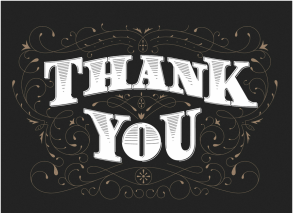Hiring People With Disabilities Isn’t Just the Right Thing to Do—It’s Good for Business
Elizabeth Picciuto – The Daily Beast
What kinds of employers hire people with intellectual and developmental disabilities (IDD)? You might imagine that they’re like George Bailey in It’s a Wonderful Life—big-hearted souls that sacrifice their business’s profits to improve their communities. A new study, however, shows that hiring people with IDD doesn’t mean that employers have jettisoned their business interests. On the contrary, hiring people with IDD is good for the bottom line. Mr. Potter should have a look.
The study was conducted by the Institute for Corporate Productivity, or i4cp, a company that analyzes the practices of high-performance organizations. Among some of the striking findings are just how many employers believe that their employees with IDD offer specific benefits to their workplaces. More than three-quarters of employers surveyed ranked their employees with IDD as good or very good on work quality, motivation, engagement, integration with co-workers, dependability, and attendance. Many employers reported being initially leery of hiring people with IDD, only to see their concerns dissolve after the employees were on board.
“The positive impact on the workforce is brought about in two ways: hiring individuals with IDD adds highly motivated people to the workforce (which can lead to increased productivity) and it promotes an inclusive culture that appeals to the talent pool organizations want to attract,” reads the study. “The improved customer satisfaction realized can lead to better sales and customer retention. The enhanced employer brand can translate to a better image in the community.”
People with IDD have historically faced enormous hurdles to getting a job. If they worked at all, it might be in sheltered workshops for significantly less than minimum wage—separate and most definitely unequal workplaces. The employment scenario is hardly any rosier at present, with the unemployment rate for people with IDD remaining tragically high: 85 percent of people with IDD do not have paid work in the community.
Based on the i4cp study, the organization Best Buddies International, which facilitates job placement for people with IDD, launched a media campaign called I’m In To Hire. The goal of the campaign is to convince employers that it is not charity, but in their best interests, to hire people with IDD. The Founder and Chairman of Best Buddies, Anthony K. Shriver, told The Daily Beast, “This study creates an opportunity for us to approach a CEO and say, let’s give this a shot.”
One of the business bigwigs Shriver has convinced is Carlos Slim, the second richest man in the world (trailing Bill Gates by a mere $1.2 billion). Slim said in an interview with The Wall Street Journal, “It is not only good for the morale of the organization but politically it would be very interesting to change something from a debt into an asset. You can change the equation.” As part of the I’m In To Hire campaign, Slim and Shriver co-wrote a Forbes editorial to convince employers of all the business benefits of hiring people with IDD.
On Thursday, the campaign announced it had received 100,000 pledges of support on its website. Celebrities and politicians of all stripes have tweeted their support for #ImInToHire, including Maria Shriver, Martin O’Malley, Cindy Crawford, Kevin Spacey, and Gavin Newsom.
“Best Buddies had a lot of anecdotal data that suggested the business benefits of hiring people with IDD. We wanted to find some empirical data to back those stories up,” said Eric Davis, Creative Director & Senior Editor at i4cp, in an interview with The Daily Beast. “There had been studies conducted showing the benefits of employing people with IDD on the employee, but we wanted to show the talent and business benefits for the employer.”
i4cp defines a high-performance organization by four factors: market share, revenue growth, profitability, and customer satisfaction. i4cp has found that diversity and inclusion policies generally are not a hindrance to organizations. In fact, they are correlated with high performance. High-performance organizations are twice as likely as low-performance organizations to emphasize diversity and inclusion as a matter of policy at the highest levels, and more than twice as likely to specifically include people with IDD in their diversity goals.
The high-performance organizations did not hire people with IDD simply to gain cushy tax subsidies. “All participants are paid minimum wage or higher. Very few of our employers utilize the tax credits,” wrote Paula Johnson, Director of the Best Buddies Jobs Program, in an email. “Our current average hourly wage is $11.95.” Indeed, the study found that high-performance companies are 37 percent more likely than low-performance companies to hire people with IDD for the straightforward reason that they are “good talent matches for open positions.”
Among the high-performance companies surveyed, more than 80 percent reported a positive experience with their employees with IDD, and a third reported the experience exceeded their expectations. “You usually don’t see those kind of numbers from HR departments that have started new hiring initiatives,” said Davis. “It’s likely the employers had anticipated certain challenges that weren’t there, and the resources to support them were greater than they had realized.”
The satisfaction experienced by high-performance companies did not surprise Shriver at all. “They’ve hired an effective and enthusiastic employee, and now have lower turnover in those jobs,” Shriver pointed out. “The culture of our schools have changed since we began inclusion of people with IDD. Our offices can transform as well.”
Younger people today have grown up in an era of increasing inclusion in schools and are far more likely to be familiar with people with IDD. However, Shriver suggested that much of the reluctance to hire people with IDD stems from lack of familiarity given previously segregated schools. “CEOs in their 40s and 50s did not grow up with inclusion in the schools and many simply do not know anybody with IDD,” he said. “They don’t know who this population is, what their capacity is when they have the right training to support them, or how to train and support them.”
To find out more about how someone with disabilities gets successfully incorporated into his workplace, I spoke with Brian DeAtley. DeAtley is Senior Research Manager at the Institute for Economic Empowerment at SourceAmerica, a non-profit organization that helps people with disabilities find jobs. He emphasized that employing people with IDD is a triple win: the employer, the employee, and the federal government all benefit. The federal government currently spends hundreds of billions of dollars yearly on services and support for unemployed people with disabilities. DeAtley argues, “Even given the EPTA [a tax credit for employers hiring people with disabilities], employing people with IDD is budget-positive for federal government.”
I also spoke with Ty Ross, who uses his considerable expertise in computers for his job as a data technician in the Davis County School District in Utah. Ross has cerebral palsy, and the Pathways to Careers initiative of SourceAmerica helped him get his position. Before Pathways, Ross had significant trouble finding a job. “My mom would take me on interviews. We got the vibe walking through the door that they weren’t taking me seriously and it was really frustrating,” he said. “I had a lot of schooling, but that doesn’t make it easy to get a job. That’s only the half the equation. You need to get an interview and get someone to give you a chance to get your foot in the door.”
Pathways operates on the premise that employing people with disabilities should never be done simply because it’s the right thing to do. “It just doesn’t work. It doesn’t sustain itself, and then they’re out of work 4-5 months later with neither side knowing what went wrong,” said DeAtley. Pathways also avoid delivering platitudinous messages about people with IDD such as She’s such a happy person or He’s just so grateful to get a job. These DeAtley suggests, communicate to the employer that the worker isn’t really a valuable employee.
Instead, like Best Buddies, Pathways argues that people with disabilities can and should be the right person for a given job. And they mean all people with disabilities. Pathways offers employment services no matter the intensiveness of the disability (they have a lottery system).
“The important work is upfront,” says DeAtley. Pathways first works with employers. Many employers don’t have an official open position that could be a fit for someone with IDD, but Pathways identifies how someone with disabilities could nonetheless add value to the company in a different way.
Then Pathways expends a good amount of effort discovering what each client can do and finds a job for him to choose from. With the right person in the right job, the need for on-the-job support is diminished. Kim Stuart, Ross’s aunt and guardian (whom he calls “mom”), agreed that the upfront work was what helped Ross get settled so well. “Pathways spent hours and hours one-on-one learning about Ty. They talked about his strengths, and how to turn them into employable skills.”
Ross started as a paid intern with an internship facilitator who helped smooth any initial bumps with his employer. For example, when Ross’s difficulties with coordination made it troublesome to use the keyboard, his facilitator found him a modified keyboard. At the end of his internship, the Davis County School District decided to hire him.
“We had thought that Ross was going to have to live on Social Security and that was that,” Stuart said. “This job totally changed his life. His outlook on life is totally different and so is the way he feels valued. That’s just as important as his getting a paycheck.”
“I’ve made close friendships. I feel like I’m making a difference when they ask me to ask me to do something and I know I’ve contributed to the overall running of the district,” Ross affirmed. “This is the first month I haven’t been receiving benefits. I’m self-sufficient.”
Shriver wants every workplace eventually to be like Ross’s. “We will finally have integration and inclusion for people with disability. It’s going to happen at some point,” he declared. “Corporations will have people that are focused on diversity, instead of me running around trying to explain the benefits and sending in staff to train them. The company itself would have that training in place. We need to give people an opportunity to demonstrate their skills. We need that door open for them, and then we can go to town.”












